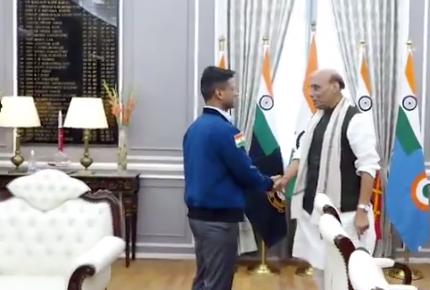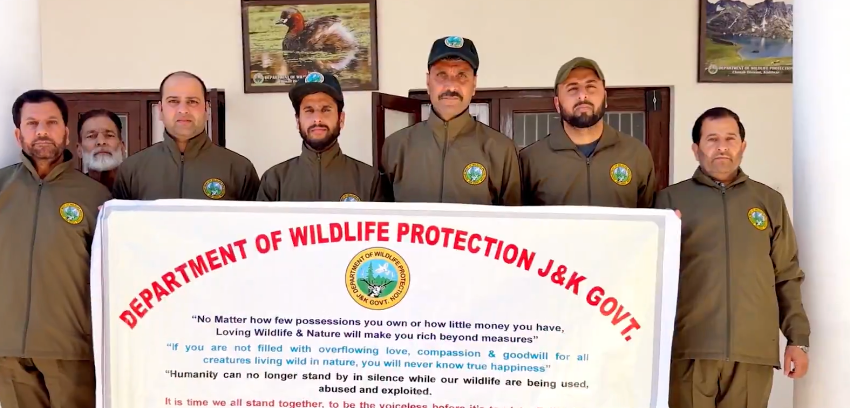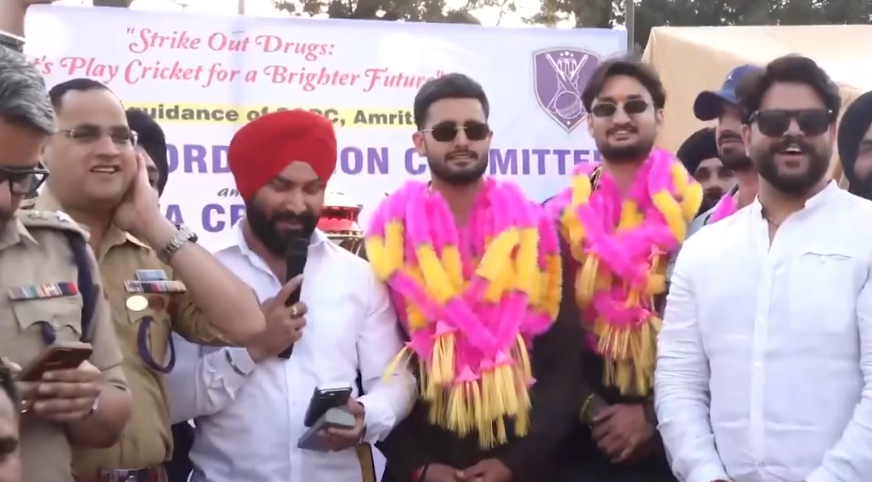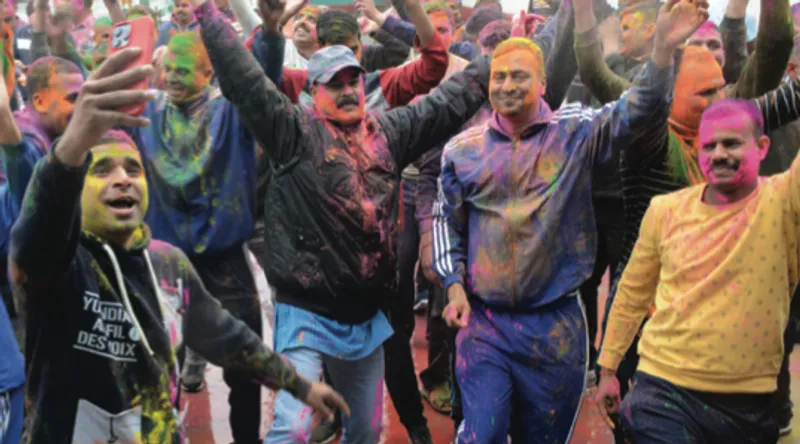Kashmir, August 22, 2025 – Group Captain Shubhanshu Shukla, the first Indian astronaut to board the International Space Station (ISS), met Union Defence Minister Rajnath Singh in New Delhi on Thursday, marking a significant moment in India’s journey toward human spaceflight. The meeting, held at South Block, focused on Shukla’s groundbreaking space journey, the vital scientific experiments conducted aboard the ISS, and the roadmap for India’s ambitious Gaganyaan mission.
Defence Minister Rajnath Singh congratulated Group Captain Shukla, describing his achievement as a “major milestone” in India’s space exploration endeavours. The minister praised Shukla’s contributions through critical microgravity experiments, which advanced India’s space research capabilities. “Delighted to meet Gp Capt Shubanshu Shukla, the first Indian Astronaut, on-board International Space Station. We discussed his inspiring space journey, the vital experiments he undertook in orbit, advances in science and technology, and the road ahead with India’s pioneering #Gaganyaan mission,” Singh posted on X.
Shukla, a group captain in the Indian Air Force (IAF) and a test pilot, served as the mission pilot for Axiom Mission 4 (Ax-4), a privately organised mission to the ISS that launched on June 25, 2025, from NASA’s Kennedy Space Centre in Florida. During his 18-day mission, Shukla conducted over 60 scientific experiments, including seven designated by the Indian Space Research Organisation (ISRO), focusing on areas such as muscle regeneration, crop viability, and microbial growth in microgravity.
The meeting highlighted the synergy between ISRO and the IAF in advancing India’s space ambitions. Singh emphasised the IAF’s pivotal role in astronaut selection, training, and mission support, stating, “The professionalism and expertise of IAF personnel are vital enablers of the country’s progress towards manned space missions.” Shukla’s mission, a collaboration between ISRO, NASA, Axiom Space, and SpaceX, marked the first time an Indian astronaut visited the ISS, making him the second Indian to travel to space after Rakesh Sharma in 1984.
Shukla shared insights from his mission, underscoring the invaluable knowledge gained from his time in orbit. At a press conference, he remarked, “Bharat aaj bhi Antariksh se saare jahaan se achha dikhta hai,” reflecting on the profound perspective of viewing Earth from space. He emphasised that the experience and data collected would significantly benefit India’s upcoming Gaganyaan mission and the planned Bharatiya Antariksh Station.
The Gaganyaan mission, India’s first crewed spaceflight program, aims to send up to three astronauts into low Earth orbit, with a potential launch in 2025. Shukla, one of four IAF officers selected for the mission, trained extensively at NASA, Axiom, and SpaceX facilities, as well as at the Gagarin Cosmonaut Training Centre in Russia and the Astronaut Training Facility in Bengaluru.
Singh expressed confidence that Shukla’s journey would inspire young Indians to pursue careers in science, technology, and space exploration, aligning with India’s vision of becoming a spacefaring nation. The successful ISS mission, costing approximately ₹548 crore (US$65 million), has been hailed as a stepping stone toward India’s goal of establishing its own space station by 2035 and achieving a crewed lunar mission by 2040.
Conclusion
Group Captain Shubhanshu Shukla’s historic mission to the ISS and his meeting with Defence Minister Rajnath Singh underscore India’s growing stature in global space exploration. The discussions on his experiments and the Gaganyaan mission reflect a national commitment to advancing scientific innovation and inspiring future generations











